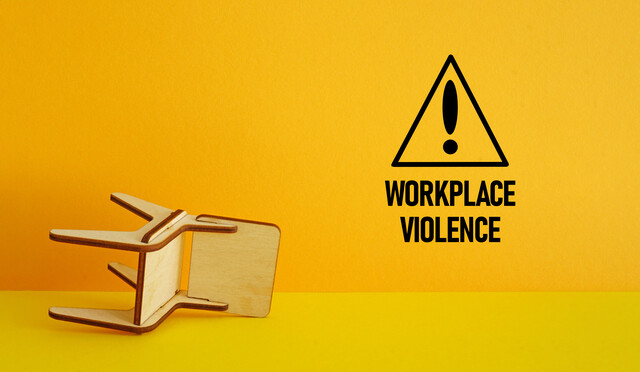Every environment has their own internal system that is dictated by aspects such as power and politics. These things have as much control over the functionality of an organizational as the individual features of organizational behavior. Often, they can shift how those components develop and affect those in the environment as well. Their impact-and that of those who control them-can shape the entire dynamics of an organization more so than any other force.
Power and politics within a business or organization are rather similar to the traditional political structures of government: authority is divided throughout the different parts of the system that power is exerted in.1 There are often different sources of power competing for control, which isn't necessarily a bad thing until someone decides to fight dirty. The internal politics of an organization, too, can be polarized as everyone will most likely relate to one side of an issue over another no matter how neutral they attempt to remain. All in all, the organizational power and politics in a business can be a fascinating and unique thing that can have a serious impact on organizational behavior.
Power struggles are a common occurrence in society, not just business. One person wants something from someone else, yet that person isn't willing to budge on the issue and just hand it over. In response, that first person may try to exert their own power and authority (perceived or actual) to try and persuade the other person to concede.2 It's a tactic that can work on occasion, but it can make a situation turn combative and toxic when it isn't successful. It occurs between co-workers, employees and their supervisors, amongst management, between different departments, and in board rooms in businesses across the world.
As normal as they are, power struggles are not an effective way to get things done in a working environment. They can damage the climate of the workplace, turning it toxic and stressful even for those who are not involved. It wastes time that can be better used towards productivity and often causes the situation to unnecessarily escalate.3 When a power struggle escalates, it often drags office politics into the mix and forces people to take a side. Attempts to avoid taking sides or getting roped in don't always work, and you may still be bombarded with the conflict even if you are successful in staying out of the situation.
The ability to stay out of a power struggle is a skill that can give you a lot of power in business, one that is best used to protect yourself. Surviving a power struggle is often the goal regardless of what industry you work in. There's still the aftermath to deal with when the dust settles, and the effects can hit anyone who happens to be standing too close. Experts say that if you want to not get involved with a power struggle, then your best bet is to not acknowledge a person's position in an argument, but their feelings.4 Make neutral observations, which can be used supportively should either party confront you about the situation and your stance in it; i.e. 'This has got to be so frustrating. I hope you two are able to work things out' or something similar that validates the emotional component of the situation.
Power in a business environment typically translates into authority and influence, and can manifest differently. People develop professional power differently, based on factors like their job, their position within the company, and the industry that the business is in. Typically, there are five types of power present in business:
- Legitimate-Based on a person's position in the structural hierarchy of a business. Legitimate power can only be given and wielded through, well, legitimate means, e.g. the person earned their position.5 Those with legitimate power often can only exert their power on those below them in the hierarchy, not above. A CEO, for example, has legitimate power over a general manager in the same company, but the general manager doesn't have legitimate power over the CEO.
- Coercive-Coercive power can be rather harsh and easily prone to abuse due to the abilities associated with it. Those with coercive power influence others through punishments, sanctions, and threats. It works well to ensure that employee behavior follows policy and can be used to deal with violations. Most disciplinary actions are carried out via coercive power, including firing or terminating someone from the business.
- Reward-The opposite of coercive power, this type influences other with rewards like promotions and bonuses.6 It generates an incentive to motivate someone to do something and acts as a positive reinforcement for behavior. Performance reviews and their administrators tend to how some level of reward power in a business.
- Referent-Those who are revered or admired in a business have referent power. Typically, leaders gain this power when their actions prompt a positive rapport and trust between them and the employees under them. Most of the time, it will be evident if a person has referent power by talking to their employees; positive praise, loyalty, and other responses are good indicators.
- Expert-Those who have expert status tend to have power over those who do not. It is gained through experience, skill, and knowledge in regards to certain topics or areas of interest.7 A person doesn't necessarily have to have expert status to have expert power; those with more knowledge of a subject can have expert power over those who know less. Those with expert power tend to have it reflected in their reputation and their credibility on things.
The Politics of Business
As mentioned before, there is a political side to business. In a sense, it follows the same science behind the politics found in government.8 There is leadership that guides the group as a whole and a company philosophy and ethical code that everyone is expected to adhere to. The set up and style of the business' leadership determines how power is divided and what role, if any, the employees have in how the business is run. The people in that business tend to have their own agenda in all of this, shaped by their behavior and viewpoints, that surpasses the agenda of the organization as a whole-which is the entire premise behind organizational or business poltics.9
Politics tend to come up in a business when someone begins to act on their own interest without regard to others in the company. It commonly comes into play during times of conflict and power struggles, as people with conflicting agendas will typically be the ones at odds. Most experts and leaders state that business politics are more harmful than good; they're inherently selfish.10 Business politics bring down productivity amongst employees through distraction, hurts motivation and morale, increases stress levels, and warps the environment of the business.
Business politics do the worst damage when business leaders act according to their personal agendas. Those in positions of power will exert their authority based on their politics, which can lead to abuse. This may also encourage conflict between opposing political sides. Leaders higher up in the business' hierarchy, like CEOs, can stir-up politics in their company regardless of if they are political themselves.11 Changes to policies and leadership, as well as changes to the components of organizational behavior, can help reduce the power of office politics-or bolster them, if not done correctly.
Warning Signs Of Abuse In Positions Of Power
When politics and power come into play in a business, there is the chance that someone will abuse the authority that they have. This can be anyone who has some degree of power, no matter where they sit in the business' hierarchy or how long they've held that position. When a person abuses their power or goes on a power trip, it can have damaging consequences for everyone. Depending on how it starts and the person's position, it may not be immediately evident that they are abusing their power. Here are some of the warning signs common to abuse of power in the workplace:
-
- Unfair Disciplinary Measures-In some cases, a person will abuse their power in order to bully those they have seniority over. As a result, they may inflict unfair disciplinary measures on others for mistakes. These tend to be punishments that do not fit the error that was made-if one was actually made, that is. A person could intentionally be picking on a specific employee or unleashing their power on everyone during a power trip.
- Superiority-Superiority develops when someone is put into a higher position and their ego takes over. It's usually done to rub the fact that they now have power into the face of someone who doesn't and boost their ego. They may humiliate those who are positioned below them and make people do things simply because they can make them do that.12 One of the worst parts of this is that they will most likely try to convince you that you have no power over them and you can't do nothing. (Spoiler alert: You can.)
- "My Way or the Highway" Behavior-If a person has an authoritarian streak in their personality, it's quite likely that it will come out in full force once they get an inkling of power over someone else. They will try to get their way through ultimatums and bullying, and will most likely micromanage everyone to make sure no one strays.13 There's no leeway for anyone (except for them) and even the tiniest deviation is enough to warrant their wrath. Sometimes this is a tactic that is used to prevent anyone else from looking professionally better than them and to block any kind of advancement or growth.14
- Disrespecting Boundaries and Abilities-Usually tied in as a kind of discrimination or harassment (depending on how it's being carried out), disrespecting employees personal boundaries and abilities tends to generate a very hostile work environment. It's usually done to get something else from a person-such as in sexual harassment-or to demean or humiliate them. This can be especially problematic because instances can extend outside of the business and drag down morale within it.
- Aggression-Everyone has lost their temper with another person before but it's not supposed to be a normal occurrence. Abuse in the workplace isn't always going to manifest solely as a byproduct of authority. Verbal and physical abuse has occurred in the professional world in varying degrees. Violence can be an intense way to intimidate people and it's one of the most common causes of injury and death in the workplace.15
How To Deal with Workplace Abuse
No one wants abuses of power to happen in their business. It's harmful to employees, the customers, productivity, and the business' overall environment. Preventing it doesn't always work, as people cannot be fully controlled. If there are abuses of power occurring in your business, here are a few things that can be done:
- Confront The Person-Best done carefully and in private, confronting the person who is on a power trip or abusing their power is one way of getting them to stop.16 Someone who has only recently started to become abusive due to their power may not realize that what they are doing is hurtful and unprofessional; power can be an intoxicating force. It should be noted that this can backfire and should definitely not be done without assistance in severe cases.
- Document It-Keep track of instances of abuse by documenting it. Write down notes on what happened, when, and where, and take it home with you; never leave it at work where an abusive person may find it and use it as a motive to attack.17 Check what laws and policies there are regarding recording someone without their permission. If there is physical evidence, take photos and keep them with your notes. All of this can be presented to the business' human resources department and used against an abuser.
- Human Resources-Here's that spoiler alert from earlier. A business' human resources department is designed to handle any instance of misbehavior amongst the staff at work. They will have the resources to deal with the situation and will know what can or cannot be done. Submitting a complaint-with copies of what you've documented-can at least bring abusive behavior to the company's attention. In severe cases where outside intervention like police or legal action is needed, the HR department will usually need to get involved in the situation on behalf of the business.
























